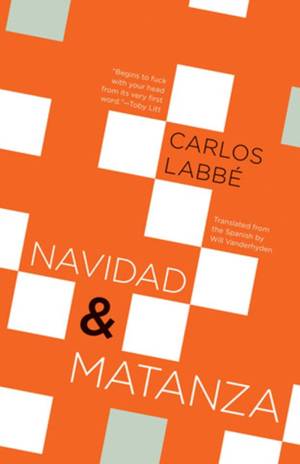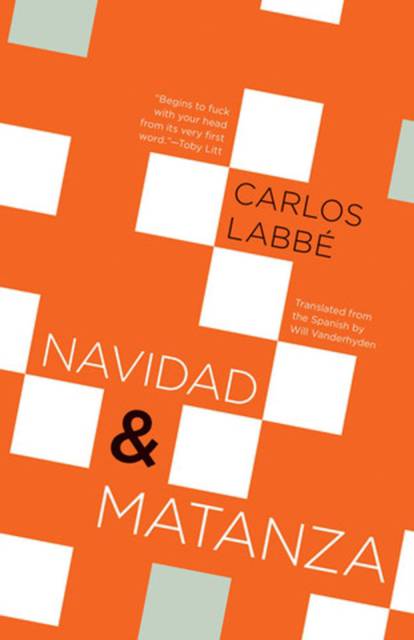
- Retrait gratuit dans votre magasin Club
- 7.000.000 titres dans notre catalogue
- Payer en toute sécurité
- Toujours un magasin près de chez vous
- Retrait gratuit dans votre magasin Club
- 7.000.000 titres dans notre catalogue
- Payer en toute sécurité
- Toujours un magasin près de chez vous
Description
"Carlos Labbé's [Navidad & Matanza] begins to fuck with your head from its very first word--moving through journalese, financial reporting, whodunit, Joseph Conrad, Raymond Chandler, Nabokov to David Lynch."--Toby Litt
It's the summer of 1999 when the two children of wealthy video game executive Jose Francisco Vivar, Alicia and Bruno, go missing in the beach town of Matanza. Long after their disappearance, the people of Matanza and the adjacent town of Navidad consistently report sightings of Bruno--on the beach, in bars, gambling--while reports on Alicia, however, are next to none. And every clue keeps circling back to a man named Boris Real . . .
At least that's how the story--or one of many stories, rather--goes. All of them are told by a journalist narrator, who recounts the mysterious case of the Vivar family from an underground laboratory where he and six other "subjects" have taken up a novel-game, writing and exchanging chapters over email, all while waiting for the fear-inducing drug hadón to take its effect, and their uncertain fates.
A literary descendant of Roberto Bolaño and Andrés Neuman, Carlos Labbé's Navidad & Matanza is a work of metafiction that not only challenges our perceptions of facts and observations, and of identity and reality, but also of basic human trust.
Carlos Labbé, one of Granta's "Best Young Spanish-Language Novelists," was born in Chile and is the author of six novels, including Navidad & Matanza and Locuela, and a collection of short stories. In addition to his writings he is a musician, and has released three albums. He is a co-editor at Sangria, a publishing house based in Santiago and Brooklyn, where he translates and runs workshops. He also writes literary essays, the most notable ones on Juan Carlos Onetti, Diamela Eltit and Roberto Bolaño--three writers whose influence can be seen in Navidad & Matanza.
Will Vanderhyden received an MA in Literary Translation from the University of Rochester. He has translated fiction by Carlos Labbé, Edgardo Cozarinsky, Alfredo Bryce Echenique, Juan Marsé, Rafael Sanchez Ferlosio, and Elvio Gandolfo.
Spécifications
Parties prenantes
- Auteur(s) :
- Editeur:
Contenu
- Nombre de pages :
- 92
- Langue:
- Anglais
Caractéristiques
- EAN:
- 9781934824924
- Date de parution :
- 15-04-14
- Format:
- Livre broché
- Format numérique:
- Trade paperback (VS)
- Dimensions :
- 137 mm x 213 mm
- Poids :
- 158 g







